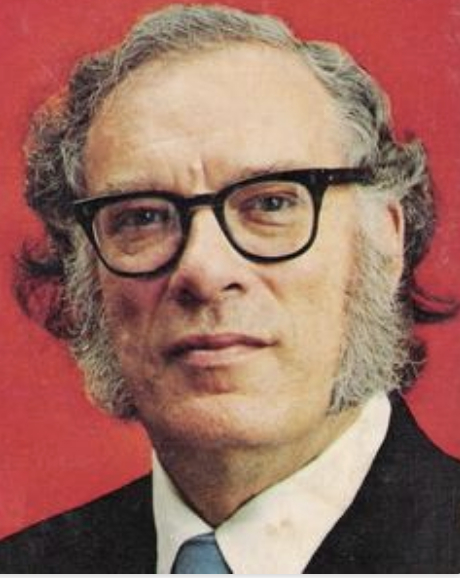On this day in 1920, Isaac Asimov, a self-described “second-generation freethinker” and one of the world’s most prolific authors, was born in Petrovichi, Russia. He moved with his family to Brooklyn, New York, in 1923 and became a naturalized citizen in 1928. He sold one of his earliest published short stories, “Nightfall,” in 1941, which was eventually voted the best science-fiction short story ever written, by the Science Fiction Writers of America.
Asimov graduated from Columbia University in 1939, earned his M.A. in 1941 and a Ph.D. in chemistry in 1948. He was hired by Boston University’s School of Medicine to teach biochemistry the following year. He became an associate professor of biochemistry in 1955 and professor in 1979, although he stopped teaching in 1958 to devote his life to writing.
I, Robot (1950) was the title of his first collection of short stories. Employing the “Asimovian Law of Composition,” which meant writing from nine to five, seven days a week (often closer to 6:30 a.m. to 10 p.m.), he averaged at least 12 new books a year. Asimov won five Hugos, three Nebula Awards, and his best-known “Foundation” trilogy was given a 1966 Hugo as “Best All-Time Science-Fiction Series.” Nonfiction works by Asimov were typically encyclopedic in range, such as his well-known Asimov’s Guide to the Bible (1968) and Asimov’s Annotated Paradise Lost (1974). He wrote a series of popular books on science and history, and even a guide to Shakespeare.
Asimov was an atheist: “I am Jewish in the sense that if an Arab wanted to throw a rock at a Jew, I would qualify as a target as far as he was concerned. However, I do not practice Judaism or any other religion.” (March 17, 1969 letter.) “Properly read, the Bible is the most potent force for atheism ever conceived.” (Feb. 22, 1966 letter.) He published 470 books, covering every category in the Dewey Decimal System, fiction and nonfiction.
Asimov was married twice and had a son and daughter from his first marriage. His death at age 72 from heart and kidney failure was a consequence of AIDS, a fact later revealed by his wife Janet Asimov. (D. 1992)


